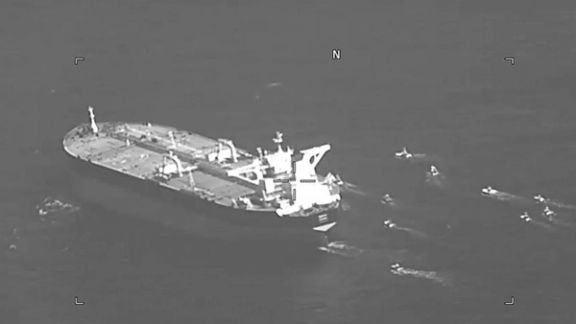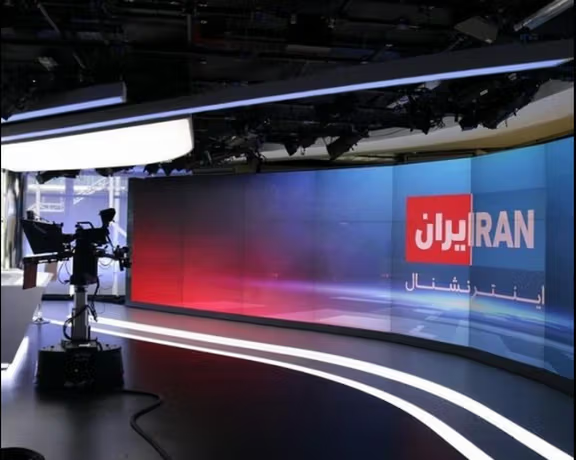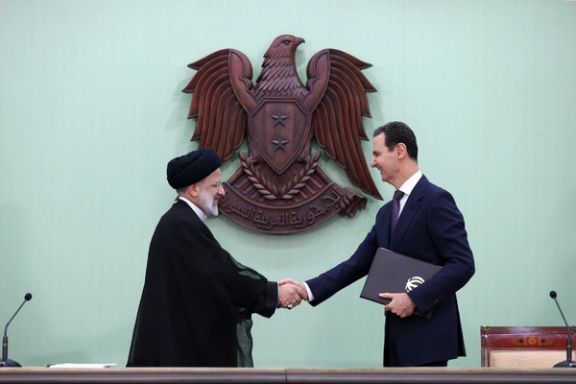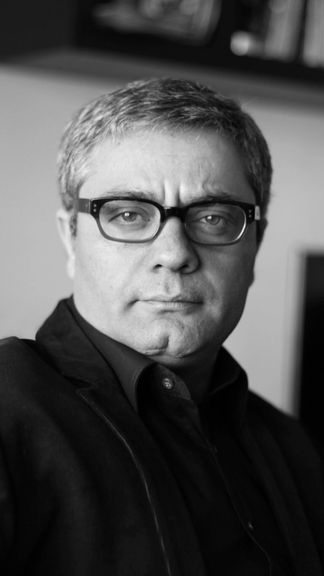Iranians Selling Their Organs Abroad Due To Poverty

With the deepening economic crisis and skyrocketing inflation, the sale of body organs abroad is reaching alarming levels in Iran, local media warns.

With the deepening economic crisis and skyrocketing inflation, the sale of body organs abroad is reaching alarming levels in Iran, local media warns.
Organ trafficking has become a major problem with people selling kidneys, liver, cornea, bone marrow, sperm, and ovum out of poverty.
Jahan-e-Sanat daily wrote Thursday that some middlemen send the prospective donors to neighboring countries such as the United Arab Emirates, Turkey, and Iraq to sell their body parts for $7,000 to $15,000.
This is the result of the country’s economic crisis, which has left many people struggling to survive. In some cases, people have even been forced to sell their organs to pay for medical bills or to support their families.
The organ trafficking industry has been estimated to be worth millions of dollars, with organs being sold to wealthy individuals. The organs are usually obtained through coercion or deception, with some being promised money and then never receiving it once the organ has been taken out.
Although Iranian law prohibits the sale or purchase of body organs, the online market is booming, and no one is taking action.
“My blood type is O negative, and I am 22 years old. I will sell my kidney for 5 billion rials (10,000 USD). Due to my financial issues, I have no choice but to sell my kidney. If you want my liver, I will sell a part of it for 2 billion rials (4,000 USD),” a young man told Jahan-e-Sanat.
According to government figures, more than 1,480 people receive a kidney transplant from a living donor in Iran annually, which is about 55 percent of the total of 2,700 transplants each year.

An online firm tracking crude oil shipments says Iran’s seizure of the Panama-flagged vessel Niovi was ‘staged’.
In the latest escalation in a series of attacks on commercial vessels since 2019, Iran seized a second oil tanker in a week on Wednesday in Persian Gulf waters.
The Bahrain-based US Fifth Fleet said the Panama-flagged oil tanker Niovi was seized by Iran's Islamic Revolutionary Guard Corps Navy (IRGCN) at 6:20 a.m. (0220 GMT) while passing through the narrow Strait of Hormuz.
TankersTrackers.com said Wednesday that “given the tanker’s history of receiving Iranian oil during the sanctions era as well as being currently empty of cargo, we believe today’s actions were entirely staged.”
Its satellite imagery shows the empty tanker was forcefully redirected by around a dozen IRGC Navy speedboats to the anchorage of Larak and Qeshm Islands south of Iran.
The Niovi oil tanker had been travelling from Dubai toward the UAE's Fujairah port when it was forced by IRGC boats to change course towards Iranian territorial waters.
Claire Jungman, Chief of Staff of US-based non-profit advocacy organization United Against Nuclear Iran (UANI) said a tweet that after reviewing leaked documents UANI strongly suspects the seizure of the Niovi is related to a dispute over a shipment of Iranian oil, tied to the sanctioned company ASB Group.
She further claimed that the oil from the Niovi was sold to another company, without ASB Group's permission while there are numerous mentions by ASB Group stating that it did not receive payment for the cargo.
“We believe that this seizure was the result of a judicial order following a complaint by a plaintiff,” added Jungman.
ASB is a group of companies owned by a Turkish businessman, which is under US sanctions due to cooperation with the IRGC Quds Force.
Meanwhile, Vedant Patel, a Deputy Spokesperson at the US State Department, told reporters that the Biden administration and the "international community" want Iran and its Navy to release the ships and crews.
According to Patel, Iran's harassment of vessels and interference with navigation rights in regional and international waters violates international law and threatens regional security and stability.
Separately, Senator James Lankford in reaction to the vessel seizure said Iran remains the top threat in the Middle East. “President Biden must push policy of strength to stop Iran’s behavior,” he added.
The seizure of the Panama-flagged vessel comes after Iran seized a Marshall Islands-flagged oil tanker in the Gulf of Oman called the Advantage Sweet last Thursday.
Maritime security firm Ambrey said it believed the Advantage Sweet's seizure by Iran was in response to a recent seizure via a court order by the United States of an oil cargo aboard the Marshall Islands tanker Suez Rajan.

Iran blasted US concern over deepening ties between Tehran and Damascus with a scathing outburst against the "evil regime".
“The anger of an evil regime, whose wind was taken out in Syria and the entire region by Iran and the axis of resistance is natural,” Iran’s Foreign Ministry Spokesman Nasser Kanaani blasted on Thursday.
Kanaani threatened that Washington must end its “aggressive presence” in war-torn Syria.
The US State Department warned Wednesday that closer ties between Iran and Syria should be of great concern not only to US allies, but also to the world more broadly.
"These are two regimes that have continued to partake in malign destabilizing activities, not just in their immediate countries, but also in the region," State Department Spokesperson Vedant Patel said.
That same day, Iranian President Ebrahim Raisi met his Syrian counterpart Bashar al-Assad in Damascus in his first visit since Syria's war began in 2011, underlining close ties as Syrian relations with Arab states thaw.
In an interview with pro-Iran broadcaster al-Mayadeen before his trip, Raisi said he planned to "consolidate and develop" ties with Syria and other allies, including the Lebanese armed group Hezbollah.
Assad and Raisi signed a memorandum of understanding on long-term comprehensive strategic cooperation while the delegates signed 15 separate documents.
Raisi's visit comes as Iran and regional rival Saudi Arabia rebuild relations after years of tensions, and as Arab states that shunned Assad - including Riyadh - rebuild ties with his government.

Britain’s shadow security minister has slammed threats from the Islamic Republic against journalists based in the UK covering Iran’s protests.
Speaking on World Press Freedom Day, Holly Lynch, the Labour MP for Halifax, said many of the threats to which the British security services and counter-terrorism police are responding to relate to the protection of journalists.
She said the threats by the Iranian regime include “assassination and kidnap plots against UK residents who are perceived as enemies of Iran owing to their coverage of the protests and the regime’s brutal crackdown”.
After a significant escalation in state-backed threats from Iran and advice from London’s Metropolitan Police, Iran International TV reluctantly closed its London studios and moved broadcasting to Washington DC in February. It is part of a long history from the regime which has for decades targeted dissidents and independent journalists who found refuge in other countries.
Faced with nationwide anti-government protests since mid-September, the Islamic Republic has blamed foreign-based Persian broadcasters such as BBC Persian and Iran International of “fomenting unrest”, while all media in the country are under tight government control and present protesters as “rioters” and “terrorists”.
In parallel, US State Department Deputy Spokesman Vedant Patel said Washington is committed to a free and independent press and commends the crucial work of journalists around the world.
“In honor of World Press Freedom Day, we call on countries to protect journalists and hold to account those who commit crimes against them,” he wrote in a tweet Wednesday.

Iran has humiliated Israel by organizing “Islamic resistance”, commander of the Revolutionary Guard’s Quds Force, Esmail Qaani said in Tehran on Wednesday.
“At this point, Israel has reached a level of humiliation that it has surrounded itself with barbed wire and radars to prevent infiltration,” Qaani told a gathering of young clerics.
The commander who replaced Qassem Soleimani after his killing by the order of former US President Donald Trump in January 2020, is in charge of Tehran’s militant proxies in the region, including Palestinian groups and the Lebanese Hezbollah.
Although Qaani is not a strong operator like his predecessor who organized a large network of proxy forces, Iran succeeded in inflaming tensions between Israel and Palestinian militant groups this year, which led to military clashes in April.
Qaani’s remarks came as Islamic Republic’s president Ebrahim Raisi was in Damascus for a two-day visit, for the first time by an Iranian head of state since civil war broke out in 2011.

Iran has a large military presence in Syria, where Israel says Tehran is building up forces to threaten its northern border and use the country as a supply route to arm Hezbollah in Lebanon.
Qaani boasted that because of Tehran’s efforts to instill “the spirit of resistance,” some days up to 30 attacks take place against Israel “that their media try to hide.”
He added that the Islamic Republic is so strong that “Today, America, Israel, NATO and others have mobilized” to destroy it.
Qaani’s remarks came as Iran seized a second oil tanker in the Persian Gulf in a span of days, despite the United States deploying a guided-missile submarine in the region in April.
The Bahrain-based US Fifth Fleet said Wednesday that the Panama-flagged oil tanker Niovi was seized by Iran's Islamic Revolutionary Guard Corps Navy (IRGCN) while passing through the narrow Strait of Hormuz.
The incident happened in international waters, as swarms of Iranian armed speed boats surrounded the vessel. It is not clear why the US Navy, which has a strong presence in the region, and was apparently aware of the unfolding seizure, did not intervene.
Asked by a reporter Wednesday why the United States does not respond to Iran’s actions, State Department Deputy Spokesperson Vedant Patel said, “When it comes to holding the – the malign Iranian regime accountable, we’ll continue to take steps to do whatever we can to protect the security of our allies and partners in the region, protect the security of the United States and its service members, and we continue to have a number of tools at our disposal.”
But clearly Tehran has decided to make oil shipping through the strategic Persian Gulf waters unsafe, potentially hurting vital oil traffic.
Saudi Arabia, which agreed to restore relations with the Islamic Republic in March after a seven-year hiatus, has not publicly reacted to Tehran’s actions in the Persian Gulf endangering oil shipments by its allies Bahrain and the United Arab Emirates.
It was expected that the Iranian regime would act more cautiously after emerging from its regional isolation following the agreement with Riyadh.
However, the calculus in Tehran might be different. The restoration of ties was brokered by China, which was seen as a blow to US influence in the Middle East. The Islamic Republic sees its alliance with China as a game changer.
“The shift in power from West to East has begun,” Qanaani said in his speech, referring to China becoming a diplomatic and military power in addition to its economic clout.
“In this shift the Islamic Republic should find its rightful place and with God’s help it will find it.”

Dissident Iranian filmmaker Mohammad Rasoulof cannot participate in the Cannes Film Festival as he is barred from leaving Iran.
The Iranian film legend was due to be on the festival’s Un Certain Regard jury but along with scores of other celebrities and sports stars, is subject to a travel ban.
Other punishments levied by the regime to celebrities include bank account freezes and communications bans.
Rasoulof was temporarily released from Evin prison in February due to health issues, offering hope that he could attend the prestigious French film festival as a jury member.
However, when the festival announced the names of the jury members on Wednesday, Mohammad Rasoulof’s name could not be seen.
He has been under house arrest since 2017 when his film "A Man of Integrity" won the main prize at the Cannes Film Festival in the Un Certain Regard section.
Due to his anti-regime content, he was given six years in prison in 2010 that was reduced to a year on appeal, and he was also banned from making films for 20 years.
He defied the ban and went on to make his drama There Is No Evil, capturing Iranian society under the Islamic Republic regime, which won the Berlinale Golden Bear in 2020.
Rasoulof and his colleague Mostafa Al-e Ahmad were arrested in July 2022 after signing an appeal along with dozens of other filmmakers and film industry workers. The appeal called on security forces to “lay down” their weapons.